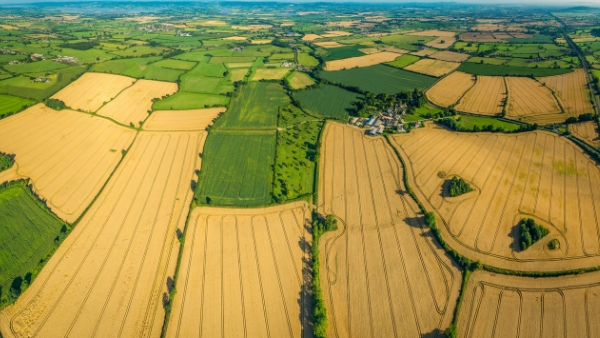Author
When a dispute arises between joint owners of land, then as long as the land is not a partnership asset, it is dealt with under the Trusts of Land and Appointment of Trustees Act 1996 (TOLATA). If an application is made to the Court under TOLATA, the outcome is commonly an order for sale and the property is sold on the open market.
While that is the most common outcome, it is not the only one. Where land is owned by family members, and has been for generations, an order for sale can be unpalatable. In the recent case of Kingsley v Kingsley, Deputy High Court Judge Ashworth QC had to consider if he could and should take a slightly different path.
The case
Roger Kingsley farmed in partnership with his sister Sally. Roger died in 2015 and that led to the automatic dissolution of the partnership. Roger’s widow, Karim, applied to the court for an order for sale. Sally defended that claim by asking the Court for an order that she be entitled to buy Roger’s share of the land, at a price to be determined by the Court.
The Court has a wide discretion under TOLATA, going beyond simply an order for sale the Court can make any order it sees fit. Obviously the Court will have an eye to the fact that a sale on the open market gives a degree of certainty; it is the value of the land on any given day.
In considering Sally’s request, the Judge was presented with the usual experts’ reports on valuation. He considered how great the risk was that the price was too low. However the Judge accepted he did not need to be satisfied that there would be no risk whatsoever to Karim before ordering a sale. Unlike the position of Trustees, the Court did not need to consider the best price for the beneficiaries. The Court’s discretion went much wider than that.
That said, there are a number of factors which TOLATA requires the Court to take into account. The one that was relevant in this instance was the purpose of the trust that had been created by two people owning jointly. It is a question of looking at the intention of the parties who created the trust at the time it was created.
The Judge noted that he was being asked to make an unusual order on a sale, as only a sale on the open market would provide a definitive test of what the land was actually worth.
However, he was satisfied, on the expert evidence, that a view could be taken on the price to be paid, with sufficient accuracy, so as to reduce the risks of Karim not receiving a proper value for her interest. The purpose of the trust was so that the farm land could be farmed by members of the Kingsley family.
Tenancy and Partnership aspects
In the Kingsley case, two other points of interest were dealt with. The first related to a parcel of land that Roger owned, which he had allowed the partnership to occupy, for which a rent was paid. Was that a tenancy under the 1986 Act? Counsel accepted in argument the proposition set out in Harrison – Broadly v Smith [1964] that the partnership could not acquire an agricultural tenancy over land which was owned by one of the partners, as the partner could not grant himself a licence over land he owned.
Karim and Sally had agreed that the partnership be wound up, but there was one aspect of the accounts was one aspect of the accounts determine. The accounts showed a large sum of money spent by the partnership on erecting the buildings on the farm (which was not a partnership asset). The Judge accepted the proposition that, where a partner expends money on property belonging to one or more of the partners, the Court can direct that the improved value of the property can be treated as a partnership asset. When that needs to be done, depends upon what the parties agreed should happen as a result of the outlay of the partnership monies.
Karim’s barrister submitted that since the figure for freehold property improvements was included within the accounts, that evidenced an agreement between the parties that the improved value of the property should be treated as a partnership asset. The Judge did not accept that. He held the view that it was simply an accounting concept. Since Roger and Sally held the land 50/50, but the partnership shares were not equal, there was no evidence to show that the parties intended that their interest in the buildings should be held in any other way other than in accordance with their interests in the farm land. The value of the buildings had already been included in the valuation of the land.
The factual position set out in Kingsley is one that can be identified in farming families across the country. The decision serves as a reminder of the wide discretion that the Court has in resolving these disputes.
Print article

